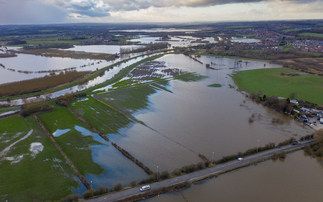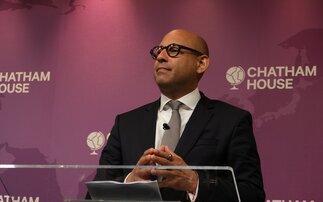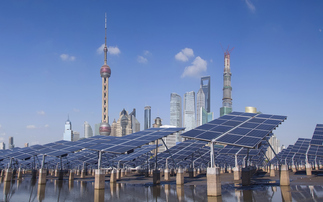BusinessGreen asks Mike Barry, head of Plan A for Marks & Spencer, why the climate change talks will be crucial for the future of the retailer
In a new series, BusinessGreen will be asking key green business leaders about their personal views on the importance of the climate change talks due to take place in the French capital at the end of this year.
This week we spoke to Mike Barry, director of Marks & Spencer's Plan A, which aims to reduce carbon emissions and waste while sourcing products more sustainably across the business.
BusinessGreen: What do you hope to see achieved in Paris?
Mike Barry: From a business perspective the key thing is stability. A long term policy framework against which we can invest and make major decisions about shifting today's approach to business to a low carbon, circular, more equitable model. A price on carbon is a significant part of this. One that can start fairly low but one which is then ratcheted to drive substantial change. A price on carbon should drive innovation without trying to second guess what innovations the market will produce.
What do you think will be agreed?
The $64,000 question! I believe we'll get a solid agreement that we should see as a beginning not an end. The EU, China and US will all commit to plans that are 'two thirds of what we need for a 2C future'. Negotiators seem to be belatedly waking up to the potential of business to plug some of the emission reduction shortfall. This business role will be surfaced in Paris in an ad hoc manner but will crystallise through 2016-18 as more and more sectors define their pathway into a low carbon future. Carbon finance will be tough as governments look to raise the $100bn per year needed to drive change in the developing world.
How would a Paris deal impact your business?
We, along with a number of other businesses, have cut our carbon footprints by approximately 25 per cent. I'm hoping Paris creates the momentum and structures (policy and financial) to deliver the next 25 per cent. The final 30 per cent will probably be galvanised by a new agreement between more confident governments beyond 2020.
The Consumer Goods Forum (which draws many of the world's biggest consumer goods company's together - Walmart, Coke, Ahold, Carrefour, Pick n Pay, P&G, Tesco, M&S etc) has responded to the likely COP21 agreement by focusing on the three biggest contributions it makes to climate change - food waste, refrigeration, and deforestation. More sectors will collectively develop these low carbon transition plans.
Do you think green businesses are making themselves heard?
The voice of business is being heard. The French negotiation team seem excited by the potential of business to stiffen the resolve of politicians to come up with a strong agreement; set and DELIVER carbon reduction plans for their sector; and innovate into new low carbon business models (think Tesla!). The Business Climate Summit in Paris in May showed this potential but it also showed we should have been having that event 12 months earlier!
The We Mean Business Coalition is also playing an important role drawing companies together from multiple sectors to get behind a few key things - price on carbon, reporting, 100 per cent renewables etc.
In 240 characters what would your message be to the lead negotiators?
Involve business more and change the low carbon narrative from risk to the opportunities of a green economy - jobs, wellbeing, community, growth.
Are you going to the Paris summit and how are you getting there?
Yes we will be there, travelling by train.
Mike Barry can be found tweeting at @planamikebarry
This article is part of BusinessGreen's Road to Paris hub, hosted in association with PwC










